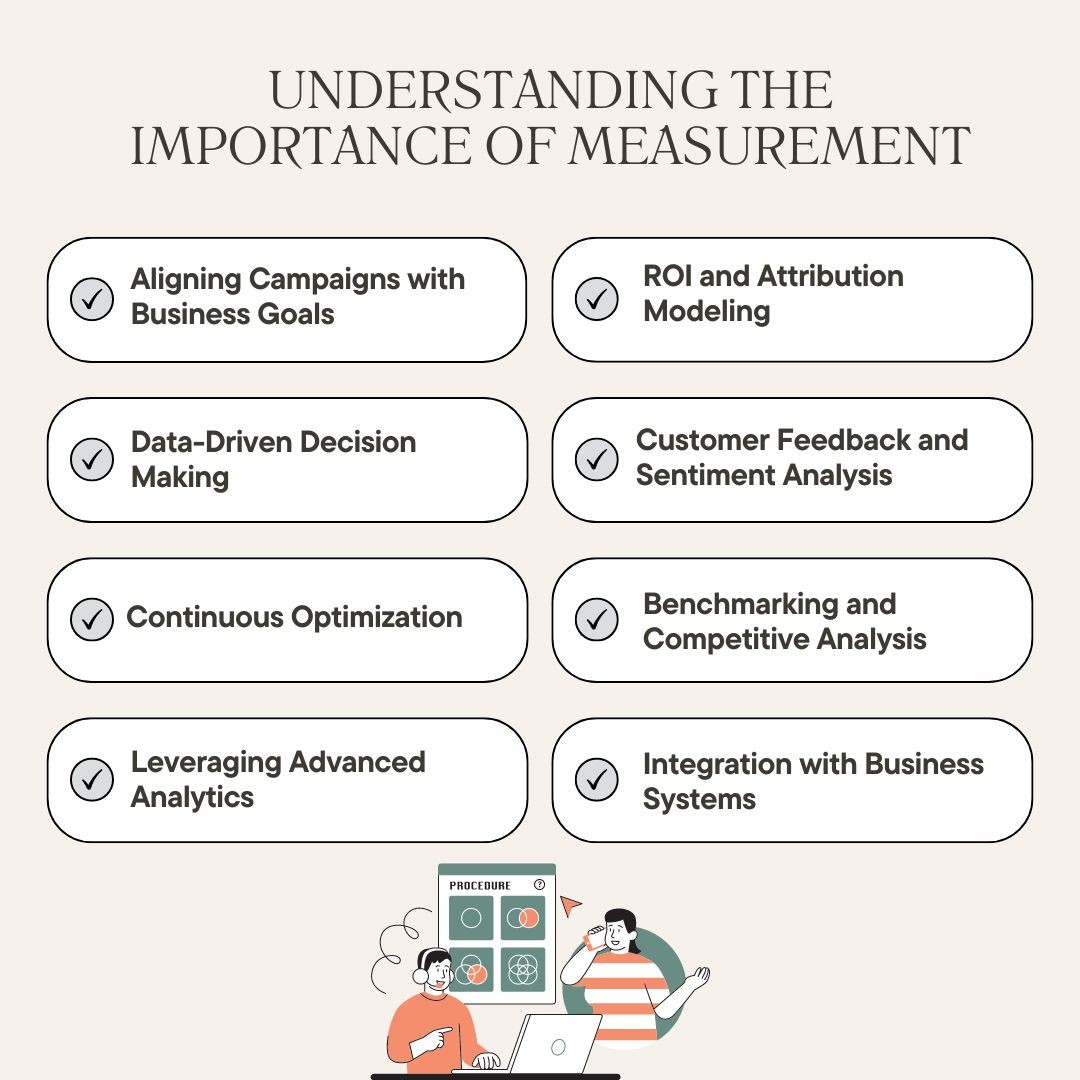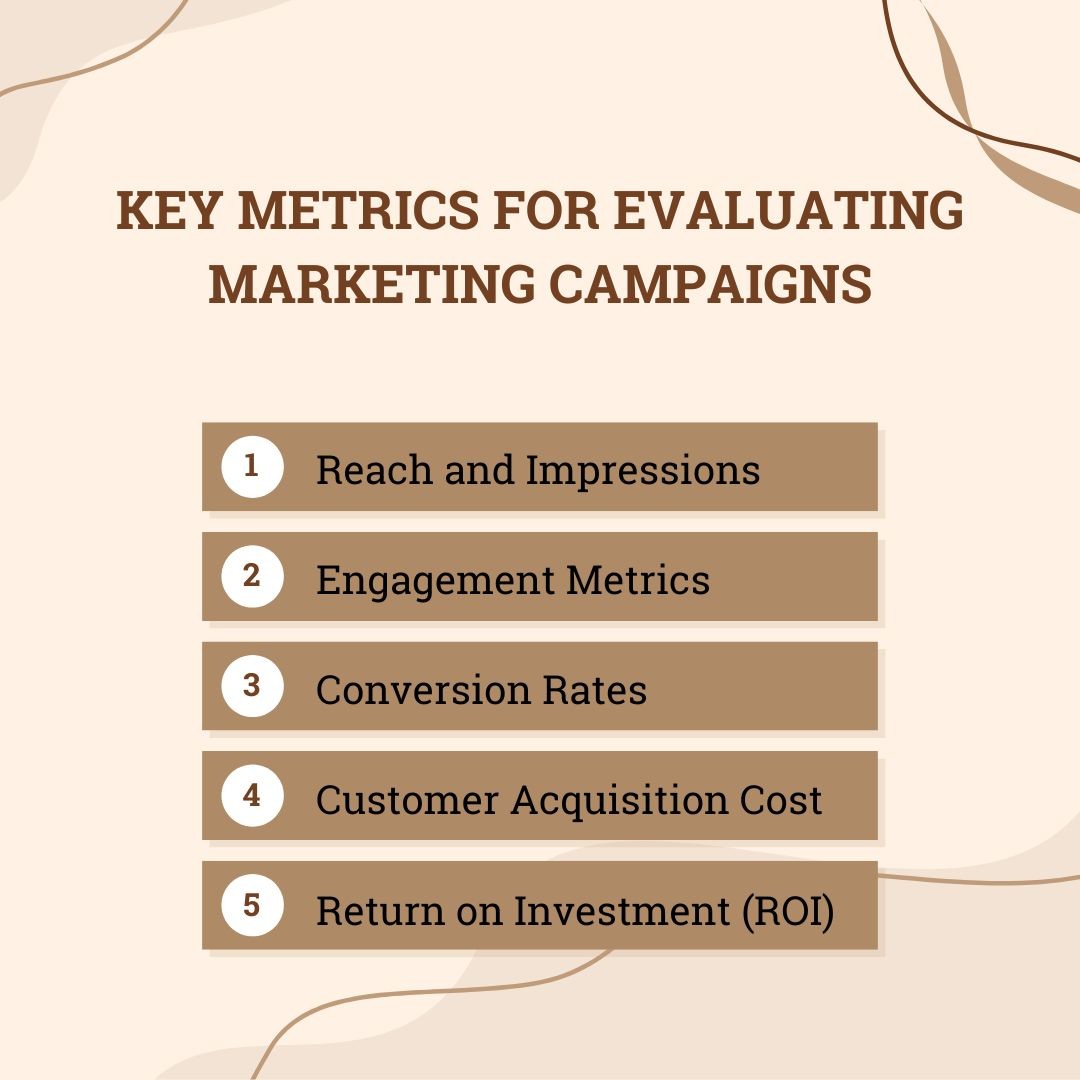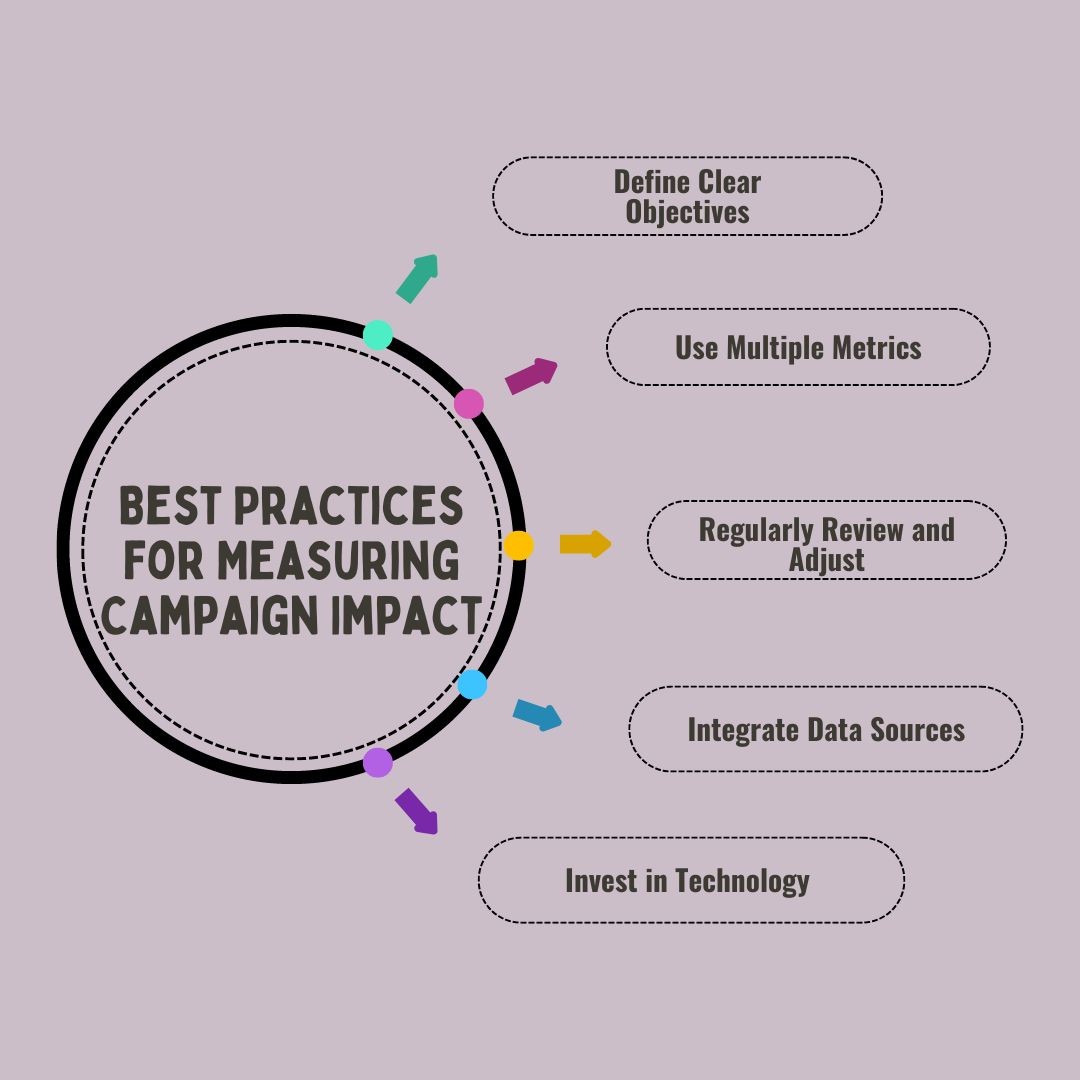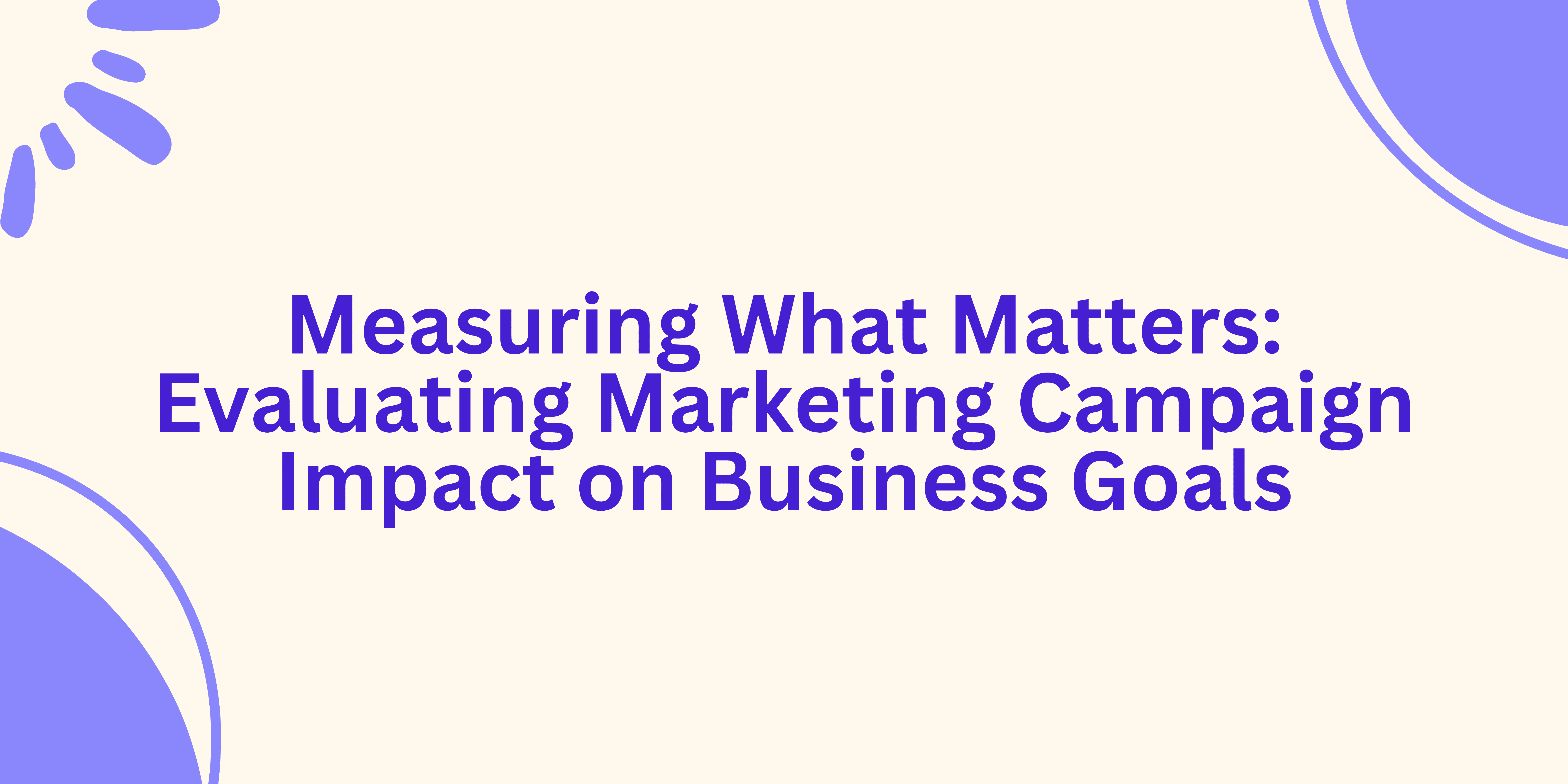Aug 5, 2024
Measuring What Matters: Evaluating Marketing Campaign Impact on Business Goals
Discover how to measure marketing campaign impact on business goals. Learn key metrics, tools, challenges, and the role of Storyteller in optimizing campaign performance.
In today's fast-paced digital world, businesses are constantly launching marketing campaigns across various channels to engage with their target audiences. However, merely running these campaigns isn't enough. The real challenge lies in measuring their impact and ensuring they align with overarching business goals. Without a clear understanding of how these campaigns are performing, companies risk wasting resources on strategies that don't yield the desired outcomes. This is where the importance of evaluating marketing campaign impact comes into play.
Understanding the Importance of Measurement
Understanding the impact of your marketing efforts is crucial for sustained success. Measuring the effectiveness of your campaigns isn't just about tracking metrics; it's about aligning your strategies with your overarching business objectives and making informed decisions that drive growth.

Aligning Campaigns with Business Goals- The first step in evaluating marketing campaigns is to ensure they are aligned with business goals. These goals could range from increasing brand awareness and generating leads to driving sales and improving customer retention. Each campaign should have specific, measurable objectives that contribute to these broader business goals. For instance, a campaign aimed at increasing brand awareness might focus on metrics like reach and impressions, while a campaign designed to drive sales would look at conversion rates and revenue.
Data-Driven Decision Making- In the age of data, decisions should be backed by concrete evidence rather than intuition. By measuring the impact of marketing campaigns, businesses can gain insights into what's working and what's not. This data-driven approach allows for more informed decisions, leading to better resource allocation and more effective strategies.
Continuous Optimization- Measurement is not a one-time task but an ongoing process. By continuously analyzing campaign performance, businesses can identify trends, pinpoint areas for improvement, and adjust strategies in real-time. This iterative approach to optimization ensures that campaigns remain relevant and effective, adapting to changes in market conditions and consumer behavior. For example, if a particular ad isn't performing well, you can quickly pivot to test new creatives, messaging, or targeting options. You can use tools like Google Analytics which provides insights into user behavior across different platforms, helping marketers identify areas of improvement and optimize their campaigns. Tools like Hotjar and Crazy Egg offer heatmap tracking to visualize where users click and scroll on your website, highlighting areas for improvement.
Leveraging Advanced Analytics- Advanced analytics tools can provide deeper insights into campaign performance. Techniques such as predictive analytics, machine learning, and A/B testing enable marketers to forecast outcomes and experiment with different variables to determine the most effective strategies. Tools like Adobe Analytics, Tableau and Hubspot can help identify which channels, messages, and audiences yield the best results, allowing for more precise targeting and efficient use of marketing budgets.
ROI and Attribution Modeling- Understanding the return on investment (ROI) of your marketing efforts is essential for demonstrating value and securing future budgets. Attribution modeling helps determine which touchpoints in the customer journey contribute most to conversions. By assigning appropriate credit to each interaction, businesses can better understand the customer journey and optimize their marketing mix accordingly. This ensures that the right resources are allocated to the most impactful channels and tactics.
Customer Feedback and Sentiment Analysis- Beyond quantitative metrics, qualitative data from customer feedback and sentiment analysis offers valuable insights into how your campaigns are perceived. Analyzing customer reviews, social media comments, and direct feedback can reveal underlying sentiments and areas for improvement. This holistic view of campaign impact helps refine messaging and improve overall customer experience.
Benchmarking and Competitive Analysis- Benchmarking your performance against industry standards and competitors provides context for your results. By comparing key metrics, such as click-through rates, conversion rates, and customer acquisition costs, you can gauge your campaign's effectiveness relative to the market. This competitive analysis helps identify strengths and weaknesses, guiding strategic adjustments to gain a competitive edge.
Integration with Business Systems- Integrating marketing measurement with other business systems, such as CRM and sales platforms, offers a comprehensive view of campaign impact. This integration enables seamless tracking of customer interactions from initial contact to final sale, providing a complete picture of marketing effectiveness. It also facilitates collaboration between marketing, sales, and customer service teams, ensuring a unified approach to achieving business goals.
Key Metrics for Evaluating Marketing Campaigns
To effectively evaluate the impact of marketing campaigns, it's essential to track a range of key metrics. These metrics provide valuable insights into various aspects of your campaign's performance, helping you refine your strategies and achieve your business objectives.

Reach and Impressions- Reach refers to the number of unique individuals who see your content, while impressions indicate the total number of times your content is displayed. These metrics are crucial for brand awareness campaigns, as they show how many people are being exposed to your message.
Engagement Metrics- Engagement metrics, such as likes, shares, comments, and click-through rates (CTR), provide insight into how your audience is interacting with your content. High engagement rates indicate that your content resonates with your audience, while low engagement may suggest a need for content optimization.
Conversion Rates- Conversion rates measure the percentage of users who take a desired action, such as making a purchase or signing up for a newsletter. This metric is critical for campaigns focused on driving sales or lead generation.
Customer Acquisition Cost (CAC)- CAC is the total cost of acquiring a new customer, including marketing and sales expenses. This metric helps businesses understand the efficiency of their marketing efforts in relation to their overall revenue.
Return on Investment (ROI)- ROI measures the profitability of a campaign by comparing the revenue generated to the cost of running the campaign. A positive ROI indicates that the campaign is profitable, while a negative ROI suggests the need for strategy adjustments.
Tools and Techniques for Effective Measurement
To achieve precise and actionable insights, leveraging the right tools and techniques is essential for measuring marketing campaign effectiveness. Here are some of the most effective methods and platforms to help you track and optimize your marketing efforts.
Analytics Platforms- There are numerous analytics platforms available that can help businesses track and measure the performance of their marketing campaigns. Google Analytics, for example, provides detailed insights into website traffic, user behavior, and conversion rates. Social media platforms like Facebook and Twitter also offer built-in analytics tools to measure engagement and reach.
Customer Relationship Management (CRM) Systems- CRM systems can help businesses track interactions with customers and measure the effectiveness of marketing campaigns in driving sales and customer retention. By integrating CRM data with marketing analytics, businesses can gain a comprehensive view of their campaign performance.
Marketing Automation Tools- Marketing automation tools, such as HubSpot and Marketo, allow businesses to automate and measure marketing tasks and workflows. These tools can track email open rates, click-through rates, and conversion rates, providing valuable insights into the effectiveness of email marketing campaigns.
A/B Testing- A/B testing involves comparing two versions of a marketing asset (such as an email, landing page, or ad) to determine which one performs better. This technique can help businesses optimize their campaigns by identifying the most effective elements.
Best Practices for Measuring Campaign Impact
To maximize the impact of your marketing campaigns, it's important to follow best practices that ensure accurate and meaningful measurement. Here are some key practices to help you evaluate and enhance your campaign performance effectively.

Define Clear Objectives- Before launching a campaign, it's crucial to define clear, measurable objectives that align with business goals. These objectives should be specific, achievable, relevant, and time-bound (SMART). Clear objectives provide direction and focus, helping to ensure that every aspect of the campaign contributes to the desired outcomes.
Use Multiple Metrics- Relying on a single metric can provide a limited view of campaign performance. Using a combination of metrics, such as reach, engagement, conversion rates, and ROI, can provide a more comprehensive understanding. This multi-faceted approach allows you to see different dimensions of your campaign’s impact, helping to identify both strengths and areas for improvement.
Regularly Review and Adjust- Marketing campaigns should be monitored and reviewed regularly to assess their performance. By conducting periodic reviews, you can track progress, identify trends, and address issues as they arise. Based on the insights gained, businesses should be prepared to adjust their strategies to optimize results. This continuous improvement cycle ensures that campaigns remain effective and responsive to changing market conditions.
Integrate Data Sources- Integrating data from various sources, such as analytics platforms, CRM systems, and marketing automation tools, can provide a holistic view of campaign performance. This integration allows for more accurate measurement and better decision-making. A unified data approach helps to eliminate silos, ensuring that all relevant information is considered when evaluating campaign success.
Invest in Technology- Investing in advanced measurement tools and technologies can enhance the ability to track and analyze campaign performance. AI and machine learning technologies, for example, can provide predictive insights and automate complex analyses. These technologies not only streamline the measurement process but also offer deeper, more actionable insights, enabling more strategic decision-making and efficient resource allocation.
The Role of Storyteller in Measuring Marketing Campaign Impact
Storyteller is designed to revolutionize the way businesses measure and optimize their marketing campaigns. By leveraging AI and data analytics, Storyteller provides powerful tools and insights that help marketers evaluate the impact of their campaigns and align them with business goals.
Comprehensive Analytics and Insights- Storyteller converts complex Meta Ads analytics into actionable insights, simplifying the analysis process and enhancing strategic decision-making. Its intuitive tools provide a granular understanding of audience behavior, helping marketers tailor their campaigns for maximum impact.
Predictive Performance- With its advanced predictive analytics capabilities, Storyteller forecasts the performance of ad creatives before they go live. This minimizes risks and allows for better optimization, ensuring campaigns deliver the highest possible ROI.
Creative Recommendations- Storyteller offers detailed, AI-enhanced strategies for content creation. These recommendations are tailored to improve engagement and conversions, making it easier for marketers to create impactful ads that resonate with their audience.
Video Intelligence- Storyteller's video intelligence feature breaks down video content into critical segments and provides specific, data-driven recommendations for each. This ensures that every part of the video is optimized to capture audience attention and drive conversions.
Seamless Integration and Support- Storyteller simplifies the ad creative process by integrating with Meta Ad accounts and utilizing AI for grouping and tagging. The platform also offers expert support to guide marketers through each step, making it easy to implement and measure successful campaigns.
Conclusion
In today's competitive digital landscape, measuring the impact of marketing campaigns on business goals is essential for success. Data-driven and AI-enhanced strategies are the key to understanding and optimizing campaign performance. Storyteller provides the tools and insights needed to navigate this complex landscape, ensuring that your marketing efforts are not only effective but also aligned with your business objectives.
Embrace the future of digital advertising with Storyteller, and turn your data into actionable insights that drive measurable success. Contact us today to learn how Storyteller can elevate your marketing campaigns and maximize your ROI.





